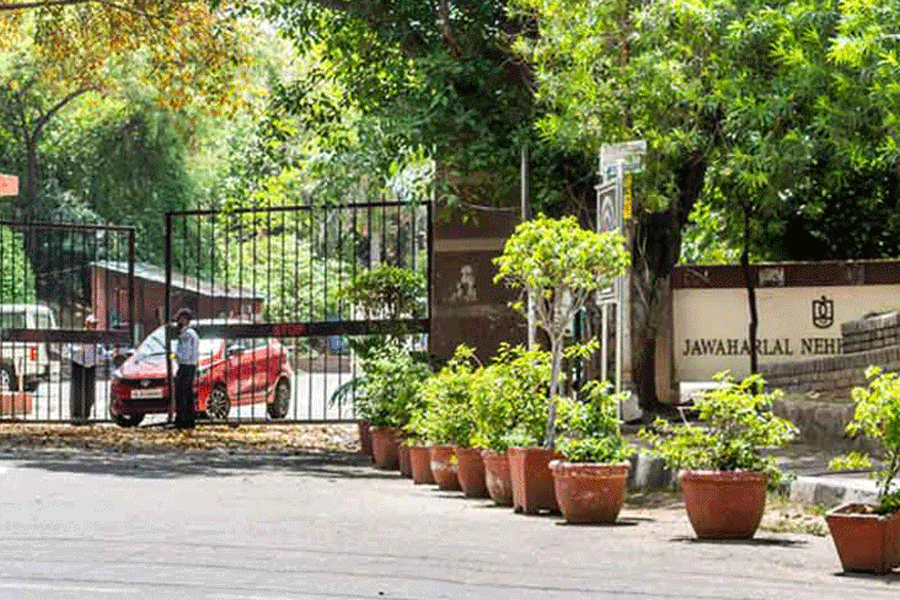Jawaharlal Nehru University (JNU) vice-chancellor Santishree D. Pandit has extended the probation period of nearly two dozen faculty members despite positive recommendations for job confirmation from chairpersons of the centres and deans of schools.
JNU had recruited 105 faculty members between March and September last year and they have to be on probation for one year. They are given their first performance report after six months and then at the end of 10 months. The last report is submitted to the Executive Council (EC) for a decision on job regularisation.
The JNU administration has confirmed the employment of 44 faculty members and extended the probation period for two dozen others. The remaining faculty members are waiting for a decision on their confirmation. The letters sent by the academic branch to the faculty members whose probation has been extended stated that the “competent authority” has taken the decision based on interactions.
It is learnt that Pandit had interacted with the faculty members and enquired about their teaching load.
JNU is primarily a research institution. A school in JNU has several centres but every centre does not offer Masters courses. For example, the School of International Studies (SIS) offers two Masters courses although it has 13 centres. This means the scope of classes is limited for newly recruited faculty members at the SIS.
After joining a centre, the newly inducted faculty members have to design some optional courses that can be offered to Masters students. Such courses will have to be approved by the Board of Studies (BoS). No new optional course has been approved in the last two years in the School of Social Sciences (SSS) as the BoS meeting has notbeen held.
The JNU Teachers Association (JNUTA) has criticised Pandit for overruling the recommendations of chairpersons and deans. The JNUTA described the orders on the extension of probation as a violation of rules as they were issued without the approval of the EC. The JNUTA said the VC was not directly involved in assigning work or monitoring the performance of the faculty members.
“The posts against which teachers are appointed are created by the EC and sanctioned by the relevant regulatory authorities on the basis of the total workload assigned to a centre. The core responsibilities that teachers are required to perform are allocated to them by the centre/ school where they are appointed,” said a statement issued by JNUTA presidentMoushumi Basu.
The JNUTA quoted the university rules which state that “it shall be the duty of the Registrar to place before the EC the case of confirmation of a teacher on probation not later than 40 days before the end of the periodof probation”.
“The specified schedule of the process of confirmation therefore gives the appointing authority ample opportunity to meet the requirements of informing the appointed teacher of any shortcomings and to issue appropriate orders before the expiry of the period of probation. Unfortunately, all these rules are being openly violated by the vice-chancellor, creating anatmosphere of despondency among faculty,” the JNUTA statement said.
An email has been sent to Pandit to understand her perspective on the alleged violation of rules related to extending the probation of faculty members. Her responseis awaited.











